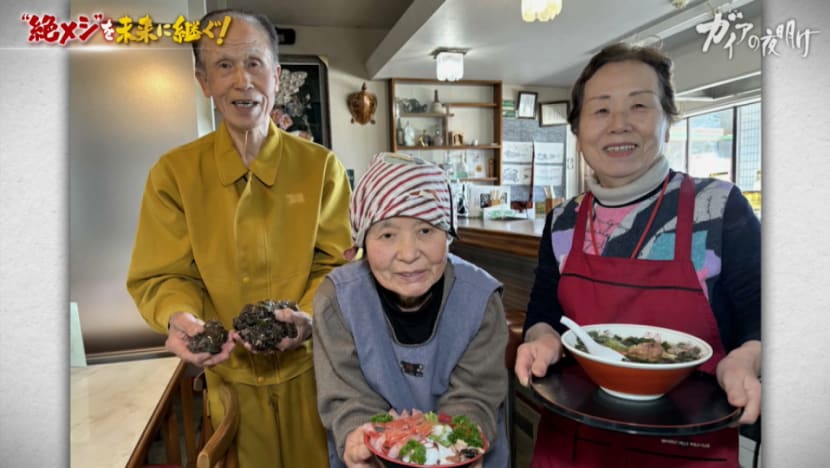Gaia Series 52 : Passing on the "exquisite gourmet" to the future!
This week’s episode explores Japan's culinary crisis as many local eateries face closure, unable to find suitable successors.


This audio is generated by an AI tool.
Japan's cherished local eateries face challenges of preserving their culinary heritage as their owners find it difficult to find successors.
In the early light of dawn, Kamakura City quietly narrates a story of resilience and renewal. This week’s episode captures the poignant closing day of Hiten, a beloved local eatery, marking the end of an era. Shingo Omote, its 76-year-old proprietor, emotionally reflects on his decision to shutter the business: "I still have the passion, but my body can't keep up," he confesses.
He has two children but they do not plan to take over the shop as few people are willing to become a chef. This is just one example of the epidemic of eateries stopping their operations. In 2023, there have been 802 restaurant closures, the highest on record.
The camera pans across the shopping centre in Kamakura City, where Hiten is located. The once-buzzing establishment prepared its final meals, surrounded by patrons whose faces mirrored nostalgia and a silent dread of losing a piece of their daily lives. Omote started cooking at the age of 15 and for 60 years, has worked in various Chinese restaurants across the city. His signature dish at Hiten is the pork stew set meal at an affordable 1,210 yen ($10.50 SGD), a meal regulars will no longer be able to enjoy as he shuts down the eatery. As one diner remarks dismally: “I haven’t found another restaurant that serves dishes that are both delicious and affordable.”
Transitioning from the serene to the bustling, the narrative moves to Gunma’s Takasaki City, where its mayor, Kenji Tomioka, is working to arrest this situation. He has created the 'Endangered Dishes Project' which seeks to safeguard local culinary gems from disappearing. It has since identified 61 popular restaurants in Takasaki that are struggling to find successors.
Among these is the story of Yasuo Takahashi, the 74-year-old chef at the Italian restaurant Del Mundo, famous for its Hamburg-joa, a hamburger atop spaghetti with a special Bolognese sauce. Many people come from nearby prefectures just to taste this delicious dish that costs just 1,300 yen. "When I quit, no one can eat it anymore," he laments, capturing the poignant reality facing many cherished eateries. “We're in a bind since there is no one to take over.”
Since Del Mundo appeared on the project’s list, its sales have increased by 1.5 times. It is Tomioka’s hope that if these restaurants on the list thrive, they will be more likely to find a successor to continue their operations. Yet, it’s not all smooth running; 12 of the 61 listed restaurants have since closed down. Some could not find successors while others, like the ramen restaurant Kochin, didn’t find suitable candidates to take over. As its 80-year-old owner Shizuo Zenyoji observed, “Twelve interviewees came but I don't want to teach them anything. They have no heart, they are all about the money.”
The documentary skilfully weaves through these individual stories, bringing to light the broader issue of cultural preservation in the face of modern economic pressures and demographic shifts. In Takasaki, as the community grapples with the potential loss of local flavours, initiatives like the Endangered Dishes Project offer a glimmer of hope. The episode showcases community members who rally to these causes, their efforts embodying a fight against the erosion of identity and tradition.
Back in Kamakura, as the sun sets on Hiten’s last day, Omote sees off his customers with gratitude, marking the end of an era with humility and honour. The finality is palpable as Omote bids his guests farewell, "Thank you very much. That's all that's left to say," his voice a soft echo amid the emptying halls of the centre. The scene is deeply moving, capturing the intimate bond between the restaurant and its patrons.
Through heartfelt interviews, emotive visuals, and a narrative that captures the essence of Japan’s culinary crisis, this week’s episode showcases the value of culinary heritage and the role it plays in defining our communal identities.
It concludes with a call to action, urging viewers to support local businesses and appreciate the rich tapestry of flavours that define their regions. The preservation of these culinary traditions is not just about maintaining recipes but about cherishing the stories and memories they represent.












